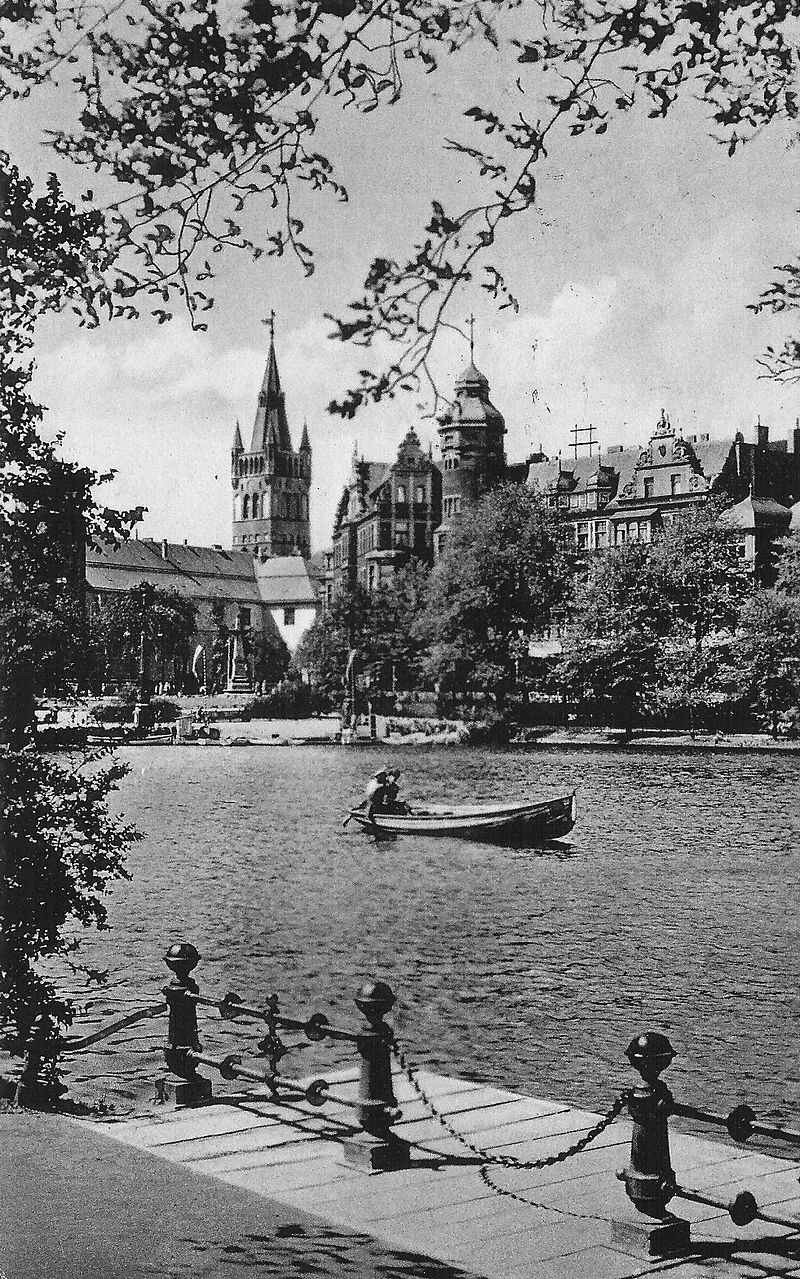Königsberg
(Kaliningrad)
Königsberg (German pronunciation: [ˈkøːnɪçsˌbɛɐ̯k]) is the name for a former German city which is now Kaliningrad, Russia. Originally a Sambian or Old Prussian city, it later belonged to State of the Teutonic Order, Duchy of Prussia, Kingdom of Prussia, German Empire, Weimar Republic and the Deutsches Reich until 1945. As the capital of the Prussian province East Prussia it was its cutural and economical center.
After being largely destroyed in World War II by Allied bombing and Soviet forces and annexed by the Soviet Union thereafter, the city was renamed Kaliningrad. Few traces of the former Königsberg remain today.
The literal meaning of Königsberg is 'King's Mountain'. In the local Low German dialect, spoken by many of its German former inhabitants, the name was Kenigsbarg (pronounced [ˈkʰeːnɪçsbarç]). Further names included Russian: Кёнигсберг, Королевец, tr. Kyonigsberg, Korolevets, Old Prussian: Kunnegsgarbs, Knigsberg, Lithuanian: Karaliaučius, Polish: Królewiec and Yiddish: קעניגסבערג, Kenigsberg.
Königsberg was founded in 1255 on the site of the ancient Old Prussian settlement Twangste by the Teutonic Knights during the Northern Crusades, and was named in honour of King Ottokar II of Bohemia. A Baltic port city, it successively became the capital of their monastic state, the Duchy of Prussia (1525-1701) and East Prussia. Königsberg remained the coronation city of the Prussian monarchy, though the capital was moved to Berlin in 1701.
A university city, home of the Albertina University (founded in 1544), Königsberg developed into an important German intellectual and cultural centre, being the residence of Simon Dach, Immanuel Kant, Käthe Kollwitz, E. T. A. Hoffmann, David Hilbert, Agnes Miegel, Hannah Arendt, Michael Wieck and others.
Between the thirteenth and the twentieth centuries, the inhabitants spoke predominantly German, but the multicultural city also had a profound influence on the Lithuanian and Polish cultures. The city was a publishing centre of Lutheran literature, including the first Polish translation of the New Testament, printed in the city in 1551, the first book in Lithuanian language and the first Lutheran catechism, both printed in Königsberg in 1547.
Königsberg was the easternmost large city in Germany until World War II. The city was heavily damaged by Allied bombing in 1944 and during the Battle of Königsberg in 1945; it was then captured and occupied by the Soviet Union on 9 April 1945. Its German population was expelled, and the city was repopulated with Russians and others from the Soviet Union. Briefly Russified as Kyonigsberg (Кёнигсберг), it was renamed "Kaliningrad" in 1946 in honour of Soviet leader Mikhail Kalinin. It is now the capital of Russia's Kaliningrad Oblast, an exclave bordered in the north by Lithuania and in the south by Poland.

Königsberg, Schlossteich 1912
Source: Von Sendker - Reichsbahndienst des Deutschen Reichs (Werbezeitschrift der Reichsbahn vom Nov. 1922), gemeinfrei
